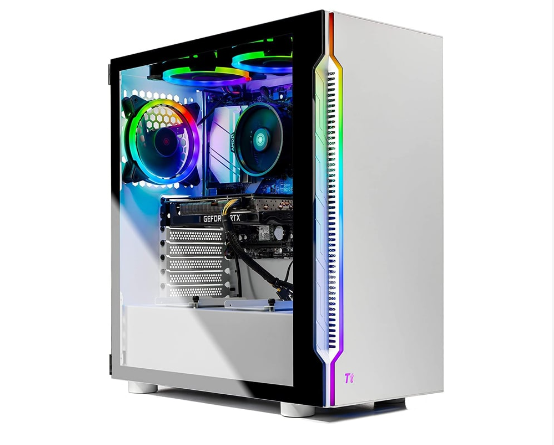Unlocking the Ultimate Gaming Experience| A Guide to Gaming PCs

In the realm of gaming, the pursuit of the ultimate experience is an ongoing quest. From immersive worlds to adrenaline-pumping action, gamers seek every advantage to elevate their gameplay. Amidst this pursuit, one crucial element stands out: the Gaming PC. In this comprehensive guide, we delve into the world of Gaming PCs, exploring their significance, components, customization options, and tips for building the ultimate setup.
Introduction to Gaming PCs:
Gaming PCs represent the pinnacle of gaming technology, offering unparalleled performance and customization options. Gaming PCs offer customizable specs to fit any budget, unlike consoles with fixed hardware. They range from basic to high-end setups, catering to various gamers’ needs.
Components of a Gaming PC:
A Gaming PC comprises several essential components, each playing a crucial role in delivering optimal performance:
- Processor (CPU): Often referred to as the “brain” of the computer, the CPU handles calculations and instructions. For gaming, CPUs with higher clock speeds and multiple cores are preferable to ensure smooth gameplay and responsiveness.
- Graphics Processing Unit (GPU): The GPU is responsible for rendering images and graphics in games. High-end GPUs with dedicated VRAM (Video Random Access Memory) are essential for running modern games at high resolutions and frame rates.
- Memory (RAM): RAM acts as temporary storage for data that the CPU needs to access quickly. Opt for higher RAM capacities to prevent performance bottlenecks and ensure smooth multitasking while gaming.
- Storage: Gaming PCs typically utilize Solid State Drives (SSDs) or Hard Disk Drives (HDDs) for storing game files and operating systems. SSDs offer faster loading times and improved system responsiveness compared to traditional HDDs.
- Motherboard: The motherboard serves as the backbone of the PC, connecting all components and facilitating communication between them. Choose a motherboard with sufficient expansion slots and support for the latest CPU and RAM technologies.
- Power Supply Unit (PSU): The PSU delivers power to all components of the PC. Select a PSU with adequate wattage and efficiency to ensure stable and reliable performance, especially when running demanding games.
- Cooling System: Efficient cooling is essential to prevent overheating and maintain optimal performance. Consider aftermarket CPU coolers and case fans to dissipate heat effectively, especially in high-performance gaming rigs.
By following these tips, you can build a Gaming PC that not only meets your performance requirements but also reflects your unique gaming style and preferences.
In conclusion
Gaming PCs offer unparalleled performance, customization options, and the flexibility to create the ultimate gaming experience. By understanding the components, customization options, and tips for building a Gaming PC, gamers can unlock a world of possibilities and elevate their gameplay to new heights. Whether you’re a casual gamer or a hardcore enthusiast, investing in a Gaming PC is sure to enhance your gaming journey. Could you provide insights into the financial investment necessary for the creation of a Gaming PC?






